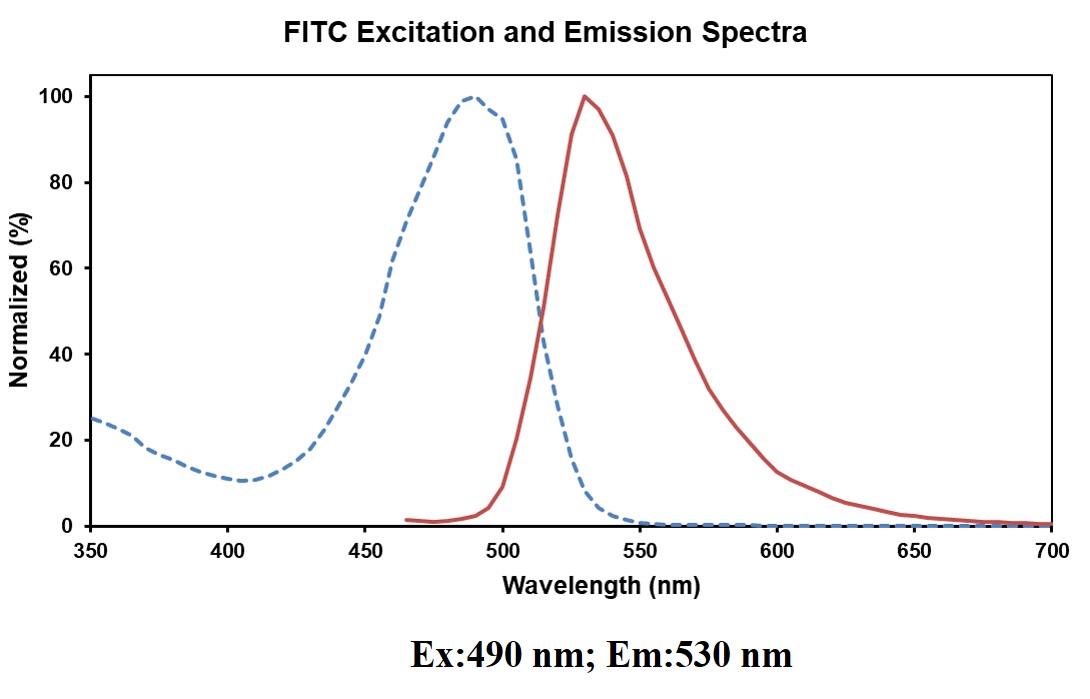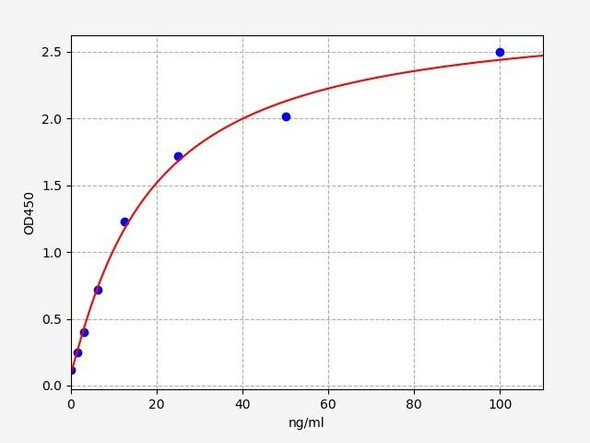FITC Anti-Mouse CD272 Antibody [PK18.6] (AGEL3186)
- SKU:
- AGEL3186
- Product Type:
- Antibody
- Antibody Type:
- Monoclonal Antibody
- Applications:
- FCM
- Reactivity:
- Mouse
- Host Species:
- Rat
- Isotype:
- Rat IgG1, k
- Clone:
- PK18.6
- Conjugation:
- FITC
Frequently bought together:
Description
| Product Title: | FITC Anti-Mouse CD272 Antibody [PK18.6] |
| SKU: | AGEL3186 |
| Size: | 25µg, 100µg |
| Clone No: | PK18.6 |
| Synonyms: | B- and T-lymphocyte attenuator;Btla;B- and T-lymphocyte-associated protein;CD272;Btla; |
| Host Species: | Rat |
| Reactivity: | Mouse |
| Application: | FCM |
| Isotype: | Rat IgG1, κ |
| Isotype Control: | FITC Rat IgG1, κ Isotype Control[HRPN] |
| Form: | Liquid |
| Conjugation: | FITC |
| Recommended Use: | Each lot of this antibody is quality control tested by flow cytometric analysis. Please check your vial before the experiment. Since applications vary, the appropriate dilutions must be determined for individual use. We suggest each investigator should titrate the reagent to obtain optimal results [The recommended concentration is 0.1-1 μg/106 cells in 100 μL volume]. |
| Spectrum: |  |
| Swissprot: | Q7TSA3 |
| Gene ID: | 208154 |
| Storage Buffer: | Phosphate buffered solution, pH 7.2, containing 0.09% stabilizer and 1% protein protectant. |
| Stability & Storage: | Keep as concentrated solution. Store at 2~8°C and protected from prolonged exposure to light. Do not freeze. Centrifuge before opening to ensure complete recovery of vial contents. This product is guaranteed up to one year from purchase. |
| Background: | CD272, also known as B and T lymphocyte attenuator (BTLA), is an Ig superfamily co-inhitory receptor with structural similarity to programmed cell death 1 (PD-1) and CTLA-4. BTLA is expressed on B cells, T cells, macrophages, dendritic cells, NKT cells, and NK cells. Engagement of BTLA by its ligand herpes virus entry mediator (HVEM) is critical for negatively regulating immune response. The absence of BTLA with HVEM inhibitory interactions leads to increased experimental autoimmune encephalomyelitis severity, enhanced rejection of partially mismatched allografts, an increased CD8+ memory T cell population, increased severity of colitis, and reduced effectiveness of T regulatory cells. BTLA plays an important role in the induction of peripheral tolerance of both CD4+ and CD8+ T cells in vivo. Tolerant T cells have significantly higher expression of BTLA compared with effectors and naïve T cells. BTLA may cooperate with CTLA-4 and PD-1 to control T cell tolerance and autoimmunity. It was reported that BTLA may regulate T cell function by binding to B7-H4, but further studies are needed to confirm. The existence of three distinct BTLA alleles has been reported. |

![FITC Anti-Mouse CD272 Antibody [PK18.6] (AGEL3186) FITC Anti-Mouse CD272 Antibody [PK18.6] (AGEL3186)](https://cdn11.bigcommerce.com/s-h68l9z2lnx/images/stencil/608x608/products/221307/606408/fitc-anti-mouse-cd272-antibody-pk18.6-agel3186__39170.1707497933.jpg?c=2)
![FITC Anti-Mouse CD272 Antibody [PK18.6] (AGEL3185) FITC Anti-Mouse CD272 Antibody [PK18.6] (AGEL3185)](https://cdn11.bigcommerce.com/s-h68l9z2lnx/images/stencil/590x590/products/221306/606205/fitc-anti-mouse-cd272-antibody-pk18.6-agel3185__49599.1707497326.jpg?c=2)



